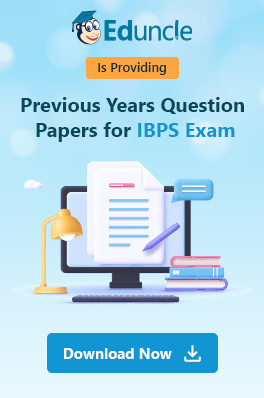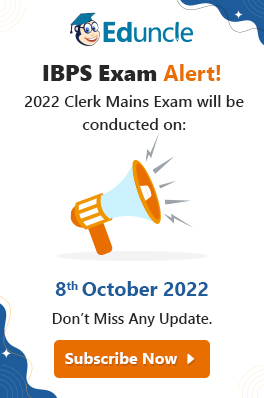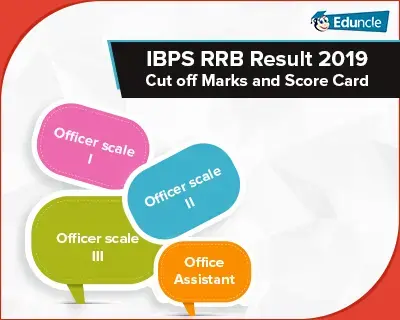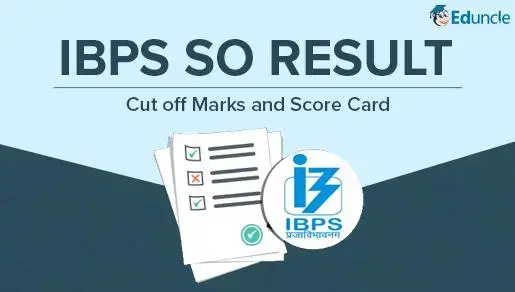Bank Interview Round! This is the race to get the job in banking sector. There are no prices for Prelims or Mains Exam if you have failed in the interview.
As you know, there are many students who clear the Bank prelims and main exam but in the interview round, they are rejected. It is very scary to be rejected in the last stage. Anything can happen! This thought should be always in your mind.
You should prepare the interview to get a banking job like you prepare for prelims or main exams.
Eduncle has come up with Banking Interview Concepts so that you will prepare well and avoid any rejection. We have described most of the banking topics in our previous five parts.
Part 1 - Principle of Core Banking
Part 2 - Banking Functions and Account
Part 3 - Reserve Bank of India
Part 4 - Banking Financial System
Part 5 - Public Sector Banks & Mutual Funds
Now, in this part, we have discussed the KYC, Banking Channels and Types of ATM.
Bank KYC (Know Your Customer)
KYC is the process to know the customer's details and address by a bank. It helps to identify that the customers are not misused of bank services. KYC will be done when a bank will open an account such as Saving Account, Deposit Account etc.
The purpose of KYC is to prevent money laundering activities from being used by criminal elements, deliberately or unknowingly by banks.
In India, first time KYC was introduced by Reserve Bank of India in 2002.
Key Element of KYC
Generally, KYC has four key elements in the banking sector: -
Customer Acceptance Policy - Only accept customers who have been identified by operating the appropriate diligence for the customer's risk profile.
Customer Identification Procedures - The policy approved by the boards of banks should clearly inform the customer identification process.
Monitoring of Transactions - This is a formal process for identifying suspicious transactions and reporting internally. It analyzes the customer's transactions.
Risk Management – It helps to manage the financial risk.
Download Free IBPS Sample Question Papers
Procedure of KYC
You can check the online and offline procedure of KYC submission below: -
Online KYC Submission: -
Step 1 - Click the official link of KYC online application form.
Step 2 - Fill the relevant details such as name, nationality, DOB, Address, Verification of PAN in the form.
Step 3 - Fill the Email ID or Phone Number and click on the button Generate OTP.
Step 4 - Fill the OTP and attach Proof of Permanent Address and Proof of Identity in the form.
Step 5 - Click on the submit button for submitting your form.
Step 6 - After successful submission of your form, you will get an email of KYC Receipt. Get a print out for the future use.
Offline KYC Submission: -
Step 1 - Download the KYC online application form from the official website or from the nearest branch.
Step 2 - Fill the relevant details such as name, nationality, DOB, Address, Verification of PAN in the form.
Step 3 - Attached Proof of Permanent Address and Proof of Identity with the form.
Step 4 - Go to the nearby Branch of your bank.
Step 5 - Submit Your Form with needed documents.
Step 6 - Get KYC Receipt from your Bank and keep it safe for future use.
Documents Required to Fill the KYC Form
KYC is done in two types: -
Individual
Non-Individual
In Individual KYC, documents acceptable as proof of identity/address: -
Passport
Voter's Identity Card
Driving License
Aadhaar Letter/Card
NREGA Card
PAN Card
Note: - Any one document towards proof of identity and proof of address (either permanent or current).
In Non-Individual KYC, documents acceptable as proof of identity/address: -
Registration certificate (In the case of a registered concern).
Certificate/ license issued by the municipal authorities under Shop & establishment act.
Sales and income tax returns.
CST/VAT certificate·
Certificate / Registration document issued by Sales Tax/ Service Tax/ Professional Tax authorities.
License issued by the registering authority.
IEC (Importer Exporter Code).
The complete Income Tax return.
Utility bills such as electricity, water, and landline telephone bills.
ID and address proof.
Note: - Any two of the above documents would suffice. These documents should be in the name of the proprietary concern.
Banking Channels
There are different types of Banking channels to access their banking and other services. In the table below, we have mentioned some important banking channels with descriptions.
| Channel | Description |
| Branch, In-Person Banking | In a retail location. |
| Automated Teller Machine (ATM) Banking | Adjacent to or remote from the bank. |
| Bank by Mail | Cheque deposits via mail and communication with customers via mail. |
| Online Banking | Banking transaction via the internet. |
| Mobile Banking | Banking transaction via one’s mobile phone. |
| Telephone Banking | Customers can transaction through via the telephone. |
| Video Banking | Banking transaction and consultation through remote video and audio connection. |
| Relationship Manager | Visit their customers’ homes and businesses. |
| Direct Selling Agent | Works for the bank based on a contract and to increase the customer base for a bank. |
Download IBPS Previous Year Papers with Answer Keys!
ATM and Types of ATM
ATM is also known as the Automated Teller Machine which is an electronic device through which customers can perform the financial transaction without interaction with bank employees.
The first ATM in India was set up in 1987 by HSBC in Mumbai.
Till June 2019, there are total 2,06,202 ATMs available in India according to the RBI Data.
The maximum limit of cash withdraw in ATMs is 20,000 per day.
The highest number of ATMs are 58,495 of SBI available in India.
Maharashtra has the highest number of ATMs in our country.
A customer can perform many operations through ATMs such as: -
Cash Withdrawals
Balance Enquiry and Printing or Ordering Bank Statements
Cash/ Cheque Deposits
Account Information
Transfer Funds
Bill Payments
Sale of Paper-Based Products
Updating Passbooks
Types of ATMs in India
There are many types of ATM available in India. You can check the table below: -
| ATM | Stand for |
| Onsite ATM | Inside the bank premises |
| Offsite ATM | Outside the bank premises |
| Worksite ATM | only for the employees of the organization |
| Cash Dispenser | Allows only cash withdrawals, balance enquiry and mini statement requests, cash dispenser(CD) |
| Mobile ATM | ATM that moves in various areas for the customers |
| White Label ATM | Provided by NBFC |
| Green Label ATM | for Agricultural Transaction |
| Orange Label ATM | for Share Transactions |
| Yellow Label ATM | for E-commerce |
| Pink label ATM | For women banking |
| Brown label ATM | hardware and the lease of the ATM machine is owned by a service provider, but cash management is provided by a sponsor bank |

If you have prepared all the topics that we have mentioned in our previous parts, then you can easily avoid any rejection in bank exams. We hope, now you have covered all the Banking Interview topics because, for most of the banking exams, the interview process has been started. So, don’t worry! Be confident and go for the interview round.
If you have any doubt regarding this article, you can ask our experts through the comment box. We will definitely try to solve your queries as soon as possible.

















